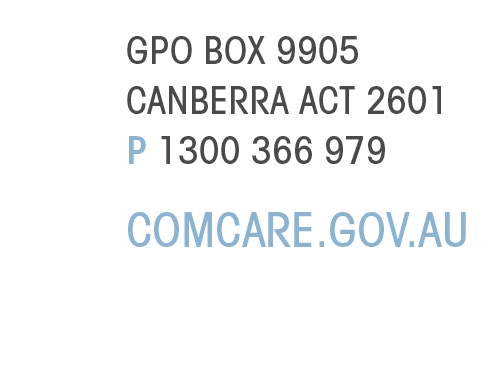
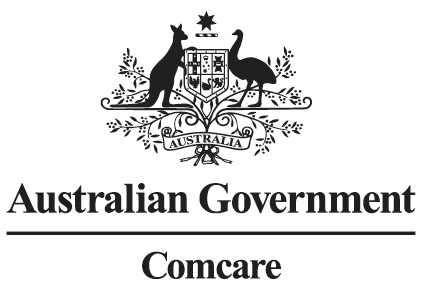
14 October 2024
Our reference: 2024/1448
James Smith
By email: xxxxxxxxxxxxxxxxxxxxxxxxxx@xxxxxxxxxxx.xxx.xx
Dear Mr Smith
Freedom of Information Request – Notice of Decision
I refer to your email of 19 June 2024 seeking access to the following:
“…all Work Health and Safety notices and reports, including Incident Reports and
Notifications sent to Comcare in relation to the MRH-90 Taipan helicopter”
On 26 June 2024, you provided the following clarification:
“
The FOI request should be read as is and hopefully is self explanatory. The request is
for all notifications and reports in relation to the helicopter. It’s not limited to any
particular incident or timeframe.
I understand Comcare has a searchable database. Additionally the information is likely
to have been provided or submitted by Defence given the role of the helicopter.”
On 8 July 2024, I notified you that your request included documents containing business
information in respect of an organisation or undertaking, which may be exempt under section
47 or 47G of the FOI Act. As such, Comcare confirmed that it was required to consult with the
relevant third party regarding the business information contained in the requested documents,
under section 27 of the FOI Act. For this reason, the processing period for your request was
extended by 30 days
On 19 July 2024, I consulted with you formal y under section 24AB of the FOI Act. I advised that
a practical refusal reason existed as the work involved in processing your request would
substantially and unreasonably divert the resources of Comcare from its other operations. On 8
August 2024, as you requested, Comcare provided a list of the documents within scope to
assist you revise your request to make it more manageable. On 15 August 2024, following this
formal consultation, you revised your scope to the following:
“
I revise the request to only the documents in that list that are dated in 2023, 2024 and
"N/A".”
On 3 and 5 September, I sought your agreement to a 30-day extension of time to process your
request under section 15AA of the FOI Act. You did not respond. On 6 September, Comcare
applied for an extension of time to process your request under section 15AB from the Office of
1
the Australian Information Commissioner (OAIC). On 12 September, OAIC decided to extend
the processing period by 30 days.
Summary of Decision
I am authorised under section 23 of the FOI Act to make decisions in relation to FOI requests.
Comcare holds 126 documents (totalling 798 pages) that relate to the scope of your request.
I have decided to:
• grant partial access to two documents, with exempt material removed, and
• refuse access to 119 documents.
I note that there are five further documents within scope of your request that Comcare could
not consider as they are classified as ‘protected’ documents by the Department of Defence
(
Defence). Comcare is unable to view or hold ‘protected’ documents on its system.
I have decided that certain documents that you have requested are partially or fully exempt
under the FOI Act, as they include information that if released:
• would, or could reasonably be expected to prejudice the conduct of an investigation of a
breach, or possible breach, of the law; (section 37),
• would, or could reasonably be expected to, have a substantial adverse effect on the
management or assessment of personnel by Comcare and Defence (section 47E(c));
• would, or could reasonably be expected to, have a substantial adverse effect on the
proper and efficient conduct of the operations of Comcare and Defence (section
47E(d)); and
• would involve the unreasonable disclosure of personal information about a person
(section 47F).
Section 22 of the FOI Act
In my email of 25 June 2024, you were advised that the names and contact details of Comcare
staff members may be excluded from your request under section 22 of the FOI Act. You did not
make any submissions and the names and contact details of Comcare staff have been removed
as irrelevant.
The reasons for my decision, including the relevant sections of the FOI Act, are set out in
Attachment A.
A schedule of documents within the scope of your request can be found at
Attachment B.
Review rights
If you disagree with any part of the FOI decision you can ask for a review. There are two ways
you can do this. You can ask for an internal review from within Comcare, or an external review
by the Office of the Australian Information Commissioner. See
Attachment C for more
information about how to seek an external review.
2
Further assistance
If you have any questions please email
xxx@xxxxxxx.xxx.xx.
Yours sincerely
Sami
Legal Adviser
Statutory Oversight Team
Legal Group
Comcare
3
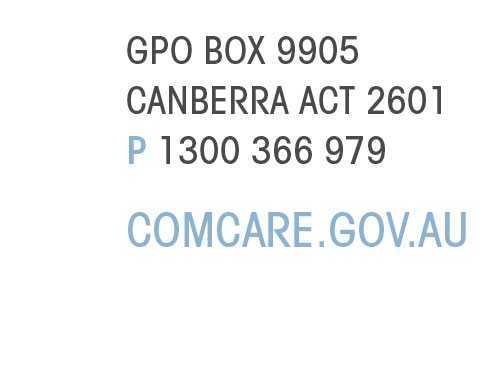
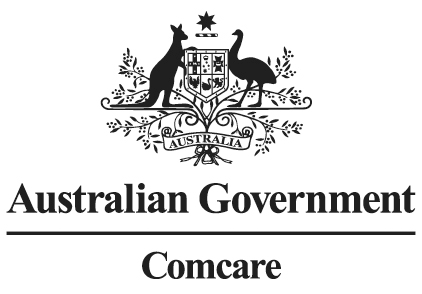 ATTACHMENT A
REASONS FOR DECISION
INFORMATION CONSIDERED
ATTACHMENT A
REASONS FOR DECISION
INFORMATION CONSIDERED
I have considered the fol owing in making my decision:
• your request of 19 June 2024;
• your clarification email of 26 June 2024;
• your email of 15 August 2024 revising your request;
• the documents that fal within the scope of your request;
• consultations with Comcare officers about:
o the nature of the documents;
o Comcare’s operating environment and functions;
• consultation with the Department of Defence (
Defence);
• guidelines issued by the Australian Information Commissioner under section 93A of the
FOI Act (the
Guidelines); and
• the FOI Act.
REASONS FOR MY DECISIONS
I am authorised to make decisions under section 23(1) of the FOI Act.
I have decided to:
• grant partial access to two documents, with exempt material removed, and
• refuse access to 119 documents.
I note that there are five further documents within scope of your request that Comcare could
not consider as they are classified as ‘protected’ documents by the Department of Defence
(
Defence). Comcare is unable to view or hold ‘protected’ documents on its system.
I have decided that certain documents that you have requested are partially or fully exempt
under the FOI Act, as they include information that if released:
• would, or could reasonably be expected to prejudice the conduct of an investigation of a
breach, or possible breach, of the law; (section 37),
• would, or could reasonably be expected to, have a substantial adverse effect on the
management or assessment of personnel by Comcare and Defence (section 47E(c));
• would, or could reasonably be expected to, have a substantial adverse effect on the
proper and efficient conduct of the operations of Comcare and Defence (section
47E(d)); and
4
• would involve the unreasonable disclosure of personal information about a person
(section 47F).
The reasons for my decision are considered below.
Section 37 – Documents affecting enforcement of law and protection of public safety
I have determined that section 37 of the FOI Act applies to most documents that fall within
scope of your request (see schedule below at
Attachment B).
Relevant Law and Guidelines
Section 37(1)(a) of the FOI Act provides:
(1) A document is an exempt document if its disclosure under this Act would, or could
reasonably be expected to:
(a) prejudice the conduct of an investigation of a breach, or possible breach, of
the law…
Further, paragraphs 5.98, 5.99, 5.103 and 5.104 of the Guidelines states the following:
[5.98] To be exempt under ss 37(1)(a) or 37(1)(b), the document in question should have
a connection with the criminal law or the processes of upholding or enforcing civil law
or administering a law. This is not confined to court action or court processes, but
extends to the work of agencies in administering legislative schemes and requirements,
monitoring compliance, and investigating breaches. The exemption does not depend on
the nature of the document or the purpose for which it was brought into existence. A
document will be exempt if its disclosure would or could reasonably be expected to
have one or more of the consequences set out in the categories listed above at [5.95]
(prejudice the conduct of an investigation of a breach, or possible breach, of the law).
[5.99] In applying this exemption, a decision maker should examine the circumstances
surrounding the creation of the document and the possible consequences of its
release. The adverse consequences need not result only from disclosure of a particular
document. The decision maker may also consider whether disclosure, in combination
with information already available to the applicant, would result in any of the specified
consequences.
[5.103] The exemption is concerned with the conduct of an investigation. For example, it
would apply where disclosure would forewarn the FOI applicant about the direction of
the investigation, as well as the evidence and resources available to the investigating
body — putting the investigation in jeopardy…
[5.104] Where the investigation is merely suspended or dormant rather than
permanently closed, or where new information may revive an investigation, the
Information Commissioner considers the exemption should apply. However, the
expectation that an investigation may revive should be more than speculative or
theoretical and be supported by evidence.
Whether the expectation of prejudice exists as a result of disclosure
5
The documents relate to an investigation conducted by Comcare to monitor and enforce
compliance with the
Work Health and Safety Act 2011 (Cth) (
WHS Act) and the
Work Health
and Safety Regulations 2011 (Cth) (
WHS Regulations).
We have consulted with the relevant Comcare area, and they have confirmed that the relevant
investigation is ongoing. Most of the documents are statutory notices, or responses to statutory
notices, that are for the purpose of gathering information and/or documents that captures
evidence in an ongoing investigation. This information is likely to disclose Comcare’s lines of
inquiry, that if revealed, may be prejudicial to any future judicial proceedings. Investigations rely
on protection of methodology and allowing evidence gathered lawfully to be untainted for a
prosecuting authority to consider.
I consider that if this information were made available, it is possible that it would prejudice the
ongoing investigation and any potential compliance action.
As we are aware that the investigation is ongoing, we consider the release of the documents
would, or could reasonably be expected to prejudice the conduct of the investigation of a
breach, or possible breach of the WHS Act and WHS Regulations.
Given the above, I am satisfied that most of the documents that fall within scope of your
request are exempt under section 37(1)(a) of the FOI Act.
Section 47E(c) - substantial adverse effect on the management or assessment of
personnel by an agency
I have determined that section 47E(c) of the FOI Act applies to some of the documents that fall
within your request (see schedule below at
Attachment B).
Relevant law and Guidelines
Section 47E(c) provides:
A document is conditionally exempt if its disclosure under this Act would, or could
reasonably be expected to, do any of the following:
…
(c) have a substantial adverse effect on the management or assessment of personnel by
the Commonwealth or by an agency.
Paragraph 6.103 of the Guidelines explains:
For this conditional exemption to apply, the documents must relate to either:
• the management of personnel – including the broader human resources policies
and activities, recruitment, promotion, compensation, discipline, harassment and
work health and safety
• the assessment of personnel – including the broader performance management
policies and activities concerning competency, in-house training requirements,
appraisals and underperformance, counselling, feedback, assessment for bonus or
eligibility for progression.
6
Further, Paragraphs 6.105 and 6.107 state the following:
[6.105] The predicted effect must arise from the disclosure of the document being
assessed. The decision maker may also need to consider the context of the
document and the integrity of a system that may require those documents, such
as witness statements required to investigate a workplace complaint, or referee
reports to assess job applicants.
[6.107] Information relating to staff training and development, such as confidential
feedback where public release could undermine confidence and inhibit candour
in performance review processes, may also be conditionally exempt under this
provision.
Substantial adverse effect
I have considered whether certain information is conditionally exempt on the basis that
disclosure would result in a substantial adverse effect on the management or assessment of
personnel by Comcare and Defence.
The documents contain information about a former employee’s workplace complaint and their
alleged performance at the agency. The employee provided personal information (opinions) on
other employees in the agency that they were unsatisfied with. The documents also include the
employee’s performance plan, which contain improvement goals, targets and objectives set by
their supervisor.
Comcare has a duty of care to ensure the health and safety of employees under the WHS Act
. I
understand that Comcare has undertaken an inspection in relation to the workplace complaint
and sought further information from the complainant. Confidentiality during the course of an
appropriate accountability process fosters fulsome participation, which allows appropriate
decision-making. The confidential process acknowledges the individual privacy and dignity of
the people involved
. I also note Defence personnel information handling is undertaken in
accordance with the
Privacy Act 1988 (Cth) (
Privacy Act) and, like Comcare, Defence is
similarly bound by strict privacy law obligations with respect to personal information held about
its people. I consider that the complainant would expect this information to be confidential and
only used for the purposes of investigating their complaint and not to be disclosed through the
FOI process.
I consider the documents relating to the workplace complaint, including their performance and
opinions of colleagues could undermine confidence and inhibit candour in performance review
and complaint processes.
Given the above, I consider the documents about the workplace complaint would have a
substantial adverse effect on the management or assessment of personnel by Comcare and
Defence.
I am therefore satisfied that disclosure of the relevant information could reasonably be
expected to have a substantial adverse effect on Comcare’s and Defence’s management of its
personnel. I have decided that the information is conditionally exempt under 47E(c) of the FOI
Act.
7
Public interest test
As I have decided that some of the documents you have requested are conditionally exempt
under section 47E(c) of the FOI Act, I have applied the public interest test to determine whether
the material should be released.
In this instance, I have decided that the factors against disclosure outweigh the factors in
favour of disclosure.
Relevant law and Guidelines
Section 11A(5) of the FOI Act provides:
The agency or Minister must give the person access to the document if it is conditional y
exempt at a particular time unless (in the circumstances) access to the document at that
time would, on balance, be contrary to the public interest.
The Guidelines state at paragraph 6.238:
To conclude that, on balance, disclosure of a document would be contrary to the public
interest is to conclude that the benefit to the public resulting from disclosure is
outweighed by the benefit to the public of withholding the information. The decision
maker must analyse, in each case, where on balance the public interest lies, based on
the particular facts of the matter at the time the decision is made.
Public interest considerations
When weighing up the public interest for and against disclosure under section 11A(5) of the FOI
Act, I have taken into account relevant factors in favour of disclosure. In particular, I have
considered the extent to which disclosure would promote the objects of the Act.
I have also considered the relevant factors indicating that access would be contrary to the
public interest. In particular, I have considered that disclosure is likely to:
• prejudice the protection of an individuals right to privacy
• harm the interests of individuals
• undermine confidence and inhibit candour in performance review and complaint
processes
• prejudice the management function of an agency.
I am satisfied that the factors against disclosure outweigh the factors for disclosure. I have not
considered any irrelevant considerations identified in section 11B(4).
I am satisfied that the protection of employees and their complaints and performances are a
significant and persuasive public interest factor against the disclosure of the exempt material.
Furthermore, I give weight to the fact that release of the information would not make a
significant positive contribution to increasing public participation in Government processes or
in increasing scrutiny, discussion, comment and review of Government activities.
8
On balance, I have decided that disclosure of the conditionally exempt documents within
would be contrary to the public interest, and the material is exempt under section 47E(c) of the
FOI Act.
Section 47E(d) – substantial adverse effect on the proper and efficient conduct of the
operations of an agency
I have determined that section 47E(d) of the FOI Act applies to some of the information
contained within the documents that fall within your request (see schedule below at
Attachment B).
Relevant law and Guidelines
Section 47E(d) relevantly provides:
A document is conditionally exempt if its disclosure under this Act would, or could
reasonably be expected to, do any of the following:
…
(d) have a substantial adverse effect on the proper and efficient conduct of the
operations of an agency.
Substantial adverse effect
Parts of the documents are exempt as they include information regarding Comcare’s internal
mailbox contact details, a specific Comcare postal address and a specific Defence office
address, which are not publicly known. Comcare and Defence use these private details to
effectively manage communications, and to ensure this information is not disseminated to the
wider public for security and work purposes.
I consider that the release of these private details of Comcare and Defence, would adversely
affect the proper and efficient conduct of the operations of these agencies. If these details are
made public, individuals may begin to send correspondence there which would impact these
agencies.
Accordingly, I consider that the release of the internal mailbox, postal and office address
details contained in the documents would have a substantial adverse effect on the proper and
efficient conduct of the security and work operations of Comcare and Defence.
Further, I consider that the disclosure of these private details would also allow members of the
public to directly make contact with these addresses, which would, or could also reasonably be
expected to, adversely affect Comcare’s and Defence’s operations by receiving unnecessary
information or correspondence to these addresses, or by individuals attempting to visit or
attend offices, which might, for example, disrupt normal operations.
The public interest
Because section 47E(d) is a conditional exemption, I must also consider the public interest in
determining whether to release the information.
9
In balancing the public interest in this case, I have considered the following factors for and
against disclosure:
Factors in favour of disclosure:
• promoting the objects of the Act, particularly in increasing scrutiny, discussion,
comment and review of the Government's activities.
Factors against disclosure:
• could reasonably be expected to prejudice security and work operations of these
agencies.
The disclosure of this information may promote some scrutiny of the manner in which the
Government manages communications within an agency. On the other hand, the disclosure
could reasonably be expected to prejudice the ongoing management of teams within Comcare,
and the safety of Defence employees, particularly with regard to the release of unpublished
internal mailbox, postal and office address details that are not intended to be used by the
general public.
On balance, I have decided that disclosure of the exempt information in would be contrary to
the public interest, and it is exempt under section 47E(d) of the FOI Act.
Section 47F – personal information
I have determined that section 47F of the FOI Act applies to some of the information contained
within the documents that fall within your request (see schedule below at
Attachment B).
Relevant law and Guidelines
Section 47F of the FOI Act relevantly provides:
(1) A document is conditionally exempt if its disclosure under this Act would involve the
unreasonable disclosure of personal information about any person (including a
deceased person).
(2) In determining whether the disclosure of the document would involve the
unreasonable disclosure of personal information, an agency or Minister must have
regard to the following matters:
(a) the extent to which the information is well known;
(b) whether the person to whom the information relates is known to be (or to have
been) associated with the matters dealt with in the document;
(c) the availability of the information from publicly accessible sources;
(d) any other matters that the agency or Minister considers relevant.
Personal information
The term ‘personal information’ is relevantly defined (in the Privacy Act) and adopted by the FOI
Act) as follows:
10
...information or an opinion about an identified individual, or an individual who is
reasonably identifiable
(a) whether the information or opinion is true or not; and
(b) whether the information or opinion is recorded in a material form or not.
Paragraph 6.125 of the Guidelines provides:
Personal information can include a person’s name, address, telephone number, date of
birth, medical records, bank account details, taxation information and signature.
Do the documents contain personal information?
The documents contain the name of a Defence employee to which this exemption has been
applied. This is ‘personal information’ as defined in the Privacy Act because it is information
about the individual who is identified or reasonably identifiable.
Is release of the personal information unreasonable?
To be conditionally exempt, disclosure of the personal information must be unreasonable.
In deciding whether disclosure of the information would be unreasonable, I have considered
the matters at s 47F(2) above. I am satisfied that release of the Defence employee’s personal
information to you would be unreasonable in the circumstances as:
• the personal information is not well known or in the public domain;
• the individuals have not provided their authority for the release of their personal
information;
• no public purpose would be achieved through the release of their personal information;
• the FOI Act does not control or restrict any subsequent use or disclosure of the
information; and
• release of their personal information may impact on the health and safety of these
individuals.
For the above reasons, I have found that the disclosure of the personal information would be
unreasonable, and the parts of the documents containing that information are exempt pursuant
to section 47F of the FOI Act.
Public interest test in relation to section 47F
For the conditional exemption under section 47F to apply, it is also necessary for me to
consider whether there is a public interest in releasing the personal information, and whether
the factors in favour of releasing the information outweigh the factors against.
Relevant law and Guidelines
Section 11A(5) of the FOI Act provides:
The agency or Minister must give the person access to the document if it is conditional y
exempt at a particular time unless (in the circumstances) access to the document at
that time would, on balance, be contrary to the public interest.
11
Section 11B Public interest exemptions – factors
Scope
(1) This section applies for the purposes of working out whether access to a
conditionally exempt document would, on balance, be contrary to the public
interest under subsection 11A(5).
(2) This section does not limit subsection 11A(5).
Factors favouring access
(3) Factors favouring access to the document in the public interest include
whether access to the document would do any of the fol owing:
a. promote the objects of this Act (including all the matters set out in
sections 3 and 3A);
b. inform debate on a matter of public importance;
c. promote effective oversight of public expenditure;
d. allow a person to access his or her own personal information
Irrelevant factors
(4) The following factors must not be taken into account in deciding whether
access to the document would, on balance, be contrary to the public interest:
a. access to the document could result in embarrassment to the
Commonwealth Government, or cause a loss of confidence in the
Commonwealth Government;
b. access to the document could result in any person misinterpreting or
misunderstanding the document;
c. the author of the document was (or is) of high seniority in the agency to
which the request for access to the document was made;
d. access to the document could result in confusion or unnecessary
debate.
The Guidelines state at paragraph 6.238:
To conclude that, on balance, disclosure of a document would be contrary to the public
interest is to conclude that the benefit to the public resulting from disclosure is
outweighed by the benefit to the public of withholding the information. The decision
maker must analyse, in each case, where on balance the public interest lies, based on
the particular facts of the matter at the time the decision is made.
Application of the public interest test
I have considered the factors listed under section 11B of the FOI Act, which are relevant to my
consideration of whether disclosure of the personal information is in the public interest.
Specifically, I have considered the extent to which the disclosure would promote the objects of
the FOI Act.
Weighed against this, I have considered whether release of the information could reasonably be
expected to prejudice the individual’s right to privacy.
12
I do not consider it is in the public interest to specifically identify the Defence employee,
especially where there is a risk that, in undertaking their duties, they may face threats or
targeted complaints and correspondence from external parties in their lives away from work.
I consider there is a significant public interest in protecting the Defence employee from
unreasonable interferences to their privacy and allowing them to undertake their duties safely
and efficiently.
Further, I do not consider that disclosure of the individual’s personal information in this context
would further promote the objects of the FOI Act generally or inform debate or effective
oversight of public importance.
I have not considered any irrelevant considerations identified in subsections 11B(4) of the FOI
Act.
I find that the relevant public interest factors in favour of disclosure are outweighed by the
public interest facts against disclosure because the individual has a right to privacy which
should be upheld in this instance.
Given the above, I am satisfied that some the information contained in the relevant documents
that fall within scope of your request is exempt under section 47F of the FOI Act.
13
ATTACHMENT B
SCHEDULE OF DOCUMENTS
James Smith (Right to Know) – 2024/1448
Doc Pages
Description
Decision
Exemption
1 1 - 2
Defence document
Access refused
s37 – affect law enforcement
2 3 - 5
Defence document
Access refused
s37 – affect law enforcement
3 6 - 16
Defence document
Access refused
s37 – affect law enforcement
4 17 - 20
Notification
Access refused
s37 – affect law enforcement
5 21 - 22
Email correspondence
Access refused
s37 – affect law enforcement
6 23 - 27
Notice
Partial access
s22 – staff details
s47E(c) – management or
assessment of personnel
s47E(d) – operations of an agency
7 28 - 47
Email correspondence
Access refused
s47E(c) – management or
assessment of personnel
8 48 - 69
Email correspondence
Access refused
s47E(c) – management or
assessment of personnel
9 70 - 91
Email correspondence
Access refused
s47E(c) – management or
assessment of personnel
10 92 - 112
Email correspondence
Access refused
s47E(c) – management or
assessment of personnel
11 113 - 117 Email correspondence
Access refused
s47E(c) – management or
assessment of personnel
12 118 - 119 Email correspondence
Access refused
s47E(c) – management or
assessment of personnel
13 120 - 127 Email correspondence
Access refused
s47E(c) – management or
assessment of personnel
14 128 - 129 Email correspondence
Access refused
s47E(c) – management or
assessment of personnel
15 130 - 131 Email correspondence
Access refused
s47E(c) – management or
assessment of personnel
14
16 132 - 142 Report
Access refused
s37 – affect law enforcement
17 143 - 148 Report
Access refused
s37 – affect law enforcement
18 149 - 154 Report
Access refused
s37 – affect law enforcement
19 155 - 160 Report
Access refused
s37 – affect law enforcement
20 161 - 166 Report
Access refused
s37 – affect law enforcement
21 167 - 172 Report
Access refused
s37 – affect law enforcement
22 173 - 178 Report
Access refused
s37 – affect law enforcement
23 179 - 184 Report
Access refused
s37 – affect law enforcement
24 185 - 190 Report
Access refused
s37 – affect law enforcement
25 191 - 196 Report
Access refused
s37 – affect law enforcement
26 197 - 202 Report
Access refused
s37 – affect law enforcement
27 203 - 208 Report
Access refused
s37 – affect law enforcement
28 209 - 214 Report
Access refused
s37 – affect law enforcement
29 215 - 220 Report
Access refused
s37 – affect law enforcement
30 221 - 226 Report
Access refused
s37 – affect law enforcement
31 227 - 232 Report
Access refused
s37 – affect law enforcement
32 233 - 238 Report
Access refused
s37 – affect law enforcement
33 239 - 244 Report
Access refused
s37 – affect law enforcement
34 245 - 250 Report
Access refused
s37 – affect law enforcement
35 251 - 256 Report
Access refused
s37 – affect law enforcement
36 257 - 262 Report
Access refused
s37 – affect law enforcement
37 263 - 267 Report
Access refused
s37 – affect law enforcement
38 268 - 273 Report
Access refused
s37 – affect law enforcement
39 274 - 279 Report
Access refused
s37 – affect law enforcement
40 280 - 285 Report
Access refused
s37 – affect law enforcement
15
41 286 - 290 Report
Access refused
s37 – affect law enforcement
42 291 - 296 Report
Access refused
s37 – affect law enforcement
43 297 - 301 Report
Access refused
s37 – affect law enforcement
44 302 - 306 Report
Access refused
s37 – affect law enforcement
45 307 - 311 Report
Access refused
s37 – affect law enforcement
46 312 - 316 Report
Access refused
s37 – affect law enforcement
47 317 - 321 Report
Access refused
s37 – affect law enforcement
48 322 - 326 Report
Access refused
s37 – affect law enforcement
49 327 - 331 Report
Access refused
s37 – affect law enforcement
50 332 - 336 Report
Access refused
s37 – affect law enforcement
51 337 - 341 Report
Access refused
s37 – affect law enforcement
52 342 - 346 Report
Access refused
s37 – affect law enforcement
53 347 - 352 Report
Access refused
s37 – affect law enforcement
54 353 - 358 Report
Access refused
s37 – affect law enforcement
55 359 - 364 Report
Access refused
s37 – affect law enforcement
56 365 - 370 Report
Access refused
s37 – affect law enforcement
57 371 - 376 Report
Access refused
s37 – affect law enforcement
58 377 - 382 Report
Access refused
s37 – affect law enforcement
59 383 - 388 Report
Access refused
s37 – affect law enforcement
60 389 - 394 Report
Access refused
s37 – affect law enforcement
61 395 - 400 Report
Access refused
s37 – affect law enforcement
62 401 - 406 Report
Access refused
s37 – affect law enforcement
63 407 - 412 Report
Access refused
s37 – affect law enforcement
64 413 - 418 Report
Access refused
s37 – affect law enforcement
65 419 - 424 Report
Access refused
s37 – affect law enforcement
16
66 425 - 430 Report
Access refused
s37 – affect law enforcement
67 431 - 436 Report
Access refused
s37 – affect law enforcement
68 437 - 442 Report
Access refused
s37 – affect law enforcement
69 443 - 448 Report
Access refused
s37 – affect law enforcement
70 449 - 453 Report
Access refused
s37 – affect law enforcement
71 454 - 459 Report
Access refused
s37 – affect law enforcement
72 460 - 465 Report
Access refused
s37 – affect law enforcement
73 466 - 470 Report
Access refused
s37 – affect law enforcement
74 471 - 475 Report
Access refused
s37 – affect law enforcement
75 476 - 480 Report
Access refused
s37 – affect law enforcement
76 481 - 486 Report
Access refused
s37 – affect law enforcement
77 487 - 492 Report
Access refused
s37 – affect law enforcement
78 493 - 497 Report
Access refused
s37 – affect law enforcement
79 498 - 502 Report
Access refused
s37 – affect law enforcement
80 503 - 507 Report
Access refused
s37 – affect law enforcement
81 508 - 512 Report
Access refused
s37 – affect law enforcement
82 513 - 517 Report
Access refused
s37 – affect law enforcement
83 518 - 536 Defence document
Access refused
s37 – affect law enforcement
84 537 - 538 Report
Access refused
s37 – affect law enforcement
85 539 - 542 Response
Access refused
s37 – affect law enforcement
86 543 - 553 Response
Access refused
s37 – affect law enforcement
87 554 - 561 Report
Access refused
s37 – affect law enforcement
88 562 - 572 Report
Access refused
s37 – affect law enforcement
89 573 - 584 Report
Access refused
s37 – affect law enforcement
90 585 - 589 Report
Access refused
s37 – affect law enforcement
17
91 590 - 595 Report
Access refused
s37 – affect law enforcement
92 596 - 612 Report
Access refused
s37 – affect law enforcement
93 613 - 620 Report
Access refused
s37 – affect law enforcement
94 621 - 624 Notice
Access refused
s37 – affect law enforcement
95 625 - 628 Notice
Access refused
s37 – affect law enforcement
96 629 - 632 Notice
Access refused
s37 – affect law enforcement
97 633 -636 Notice
Access refused
s37 – affect law enforcement
98 637 - 640 Notice
Access refused
s37 – affect law enforcement
99 641 - 644 Notice
Access refused
s37 – affect law enforcement
100 645 - 649 Notice
Access refused
s37 – affect law enforcement
101 650 - 653 Notice
Access refused
s37 – affect law enforcement
102 654 - 657 Notice
Access refused
s37 – affect law enforcement
103 658 - 661 Notice
Access refused
s37 – affect law enforcement
104 662 - 665 Notice
Access refused
s37 – affect law enforcement
105 666 - 670 Notice
Access refused
s37 – affect law enforcement
106 671 - 674 Notice
Access refused
s37 – affect law enforcement
107 675 - 678 Notice
Access refused
s37 – affect law enforcement
108 679 - 682 Notice
Access refused
s37 – affect law enforcement
109 683 - 686 Notice
Access refused
s37 – affect law enforcement
110 687 - 690 Notice
Access refused
s37 – affect law enforcement
111 691 - 694 Notice
Access refused
s37 – affect law enforcement
112 695 - 698 Notice
Access refused
s37 – affect law enforcement
113 699 - 702 Notice
Access refused
s37 – affect law enforcement
114 703 - 706 Notice
Access refused
s37 – affect law enforcement
115 707 - 708 Email correspondence
Access refused
s37 – affect law enforcement
18
116 709 - 714 Email correspondence
Access refused
s37 – affect law enforcement
117 715 - 726 Email correspondence
Access refused
s37 – affect law enforcement
118 727 - 728 Email correspondence
Access refused
s37 – affect law enforcement
119 729
Email correspondence
Access refused
s37 – affect law enforcement
120 730 - 734 Email correspondence
Access refused
s37 – affect law enforcement
121 735
Image
Partial access
s47F – personal information
122 Protected Defence documents
N/A
N/A
-
(63 pages
126 in total)
19
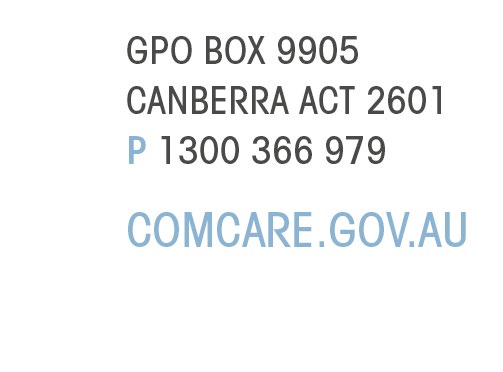
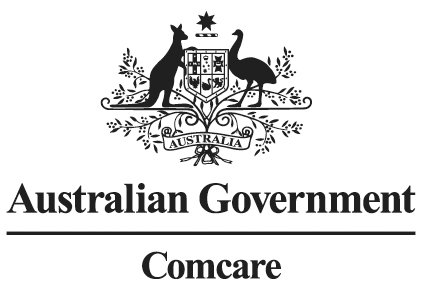 ATTACHMENT C
ATTACHMENT C
INFORMATION ON RIGHTS OF REVIEW
FREEDOM OF INFORMATION ACT 1982
Application for review of decision
The
Freedom of Information Act 1982 (FOI Act) gives you the right to apply for a review of this
decision. Under sections 54 and 54L of the FOI Act, you can apply for a review of this decision
by:
(i)
an internal review officer within Comcare; or
(ii) the Information Commissioner.
Internal Review
If you apply for internal review, it will be carried out by a different decision-maker who wil make
a fresh decision on your application. An application for review must be:
•
made in writing;
•
made within 30 days of receiving this letter; and
•
sent to the postal or email address shown in this letter.
No particular form is required, but it is desirable to set out in the application the grounds upon
which you consider the decision should be reviewed.
If the internal review officer decides not to grant you access to all of the documents to which
you have requested access, you have the right to seek a review of that decision by the
Information Commissioner. You will be further notified of your rights of review at the time you
are notified of the internal review decision.
Please note that if you apply for an internal review and a decision is not made by an internal
review officer within 30 days of receiving the application, you have the right to seek review by
the Information Commissioner for a review of the original FOI decision on the basis of a
'deemed refusal' decision, An application for Information Commissioner review in this situation
must be made within 60 days of the date when the internal review decision should have been
made (provided an extension of time has not been granted or agreed).
Information Commissioner review
You must apply in writing within 60 days of the receipt of the decision letter and you can lodge
your application in one of the following ways:
Online:
www.oaic.gov.au
Post:
GPO Box 5218, Sydney NSW 2001
Email:
xxxxxxxxx@xxxx.xxx.xx
20 of 21
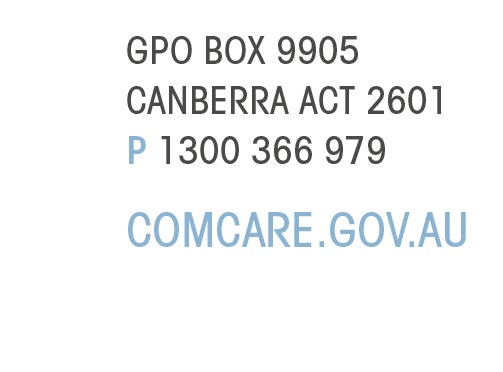
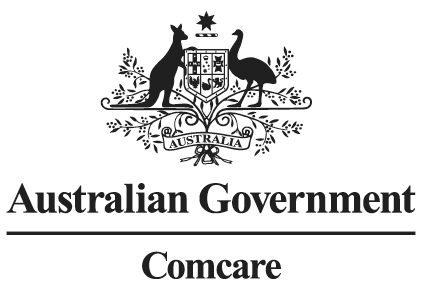
If a person has sought an internal review and no result of that review is provided within 30 days,
then the applicant may apply to the Information Commissioner to review the matter.
An application form is available on the website a
t www.oaic.gov.au. Your application should
include a copy of the notice of the decision that you are objecting to (if one was provided), and
your contact details. You should also set out why you are objecting to the decision.
Complaints to the Information Commissioner or the Commonwealth Ombudsman
You may complain to either the Commonwealth Ombudsman or the Australian Information
Commissioner about action taken by Comcare in relation to your request. The Ombudsman will
consult with the Australian Information Commissioner before investigating a complaint about
the handling of an FOI request.
Your enquiries to the Ombudsman can be directed to:
Phone:
1300 362 072 (local call charge)
Email:
xxxxxxxxx@xxxxxxxxx.xxx.xx
Your enquiries to the Australian Information Commissioner can be directed to:
Phone:
1300 363 992 (local call charge)
Email:
xxxxxxxxx@xxxx.xxx.xx
No particular form is required to make a complaint to the Ombudsman or the Australian
Information Commissioner. The request should be in writing and should set out the grounds on
which it is considered that the action taken in relation to the request should be investigated and
identify Comcare as the relevant agency.
21 of 21







